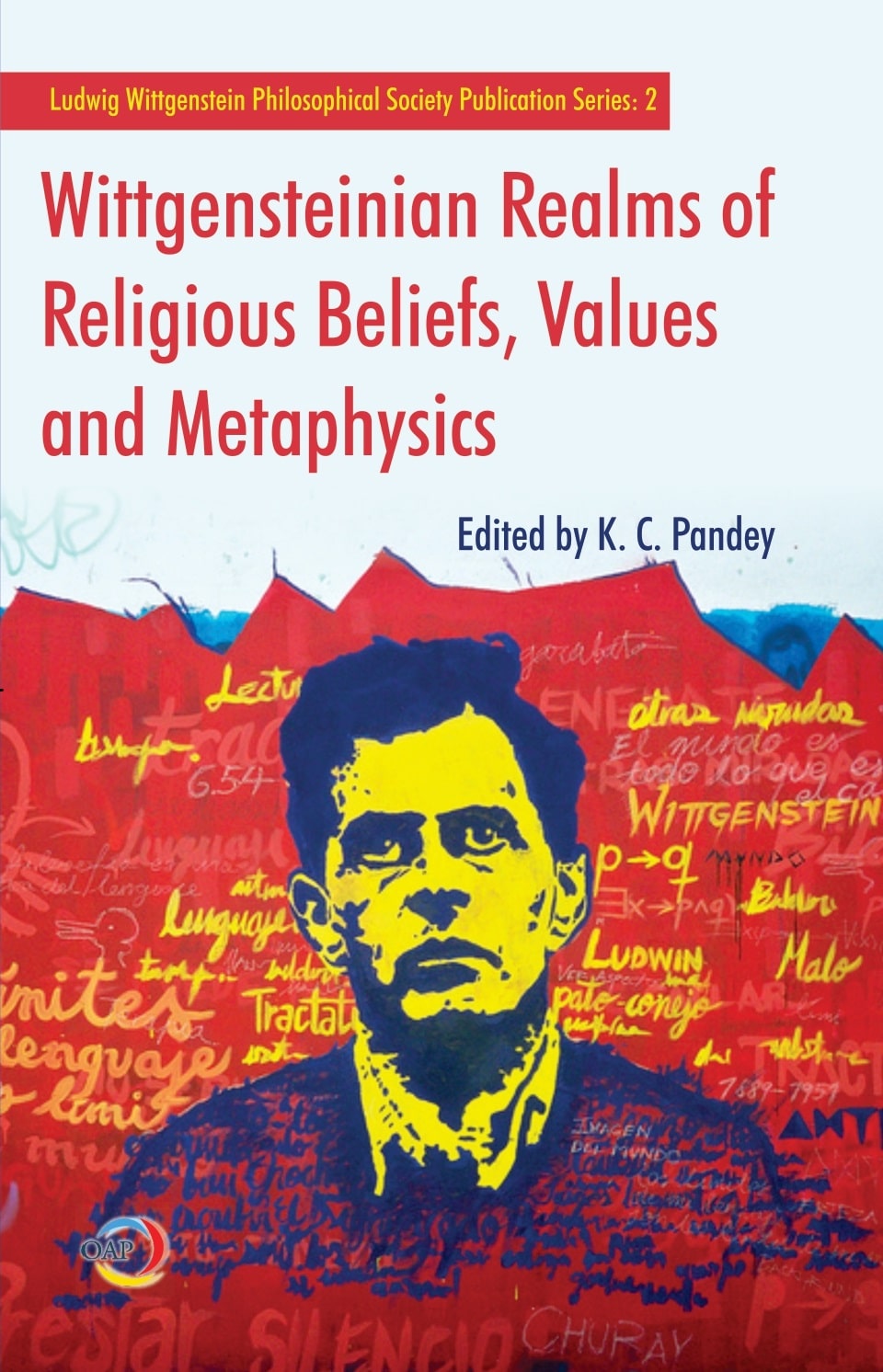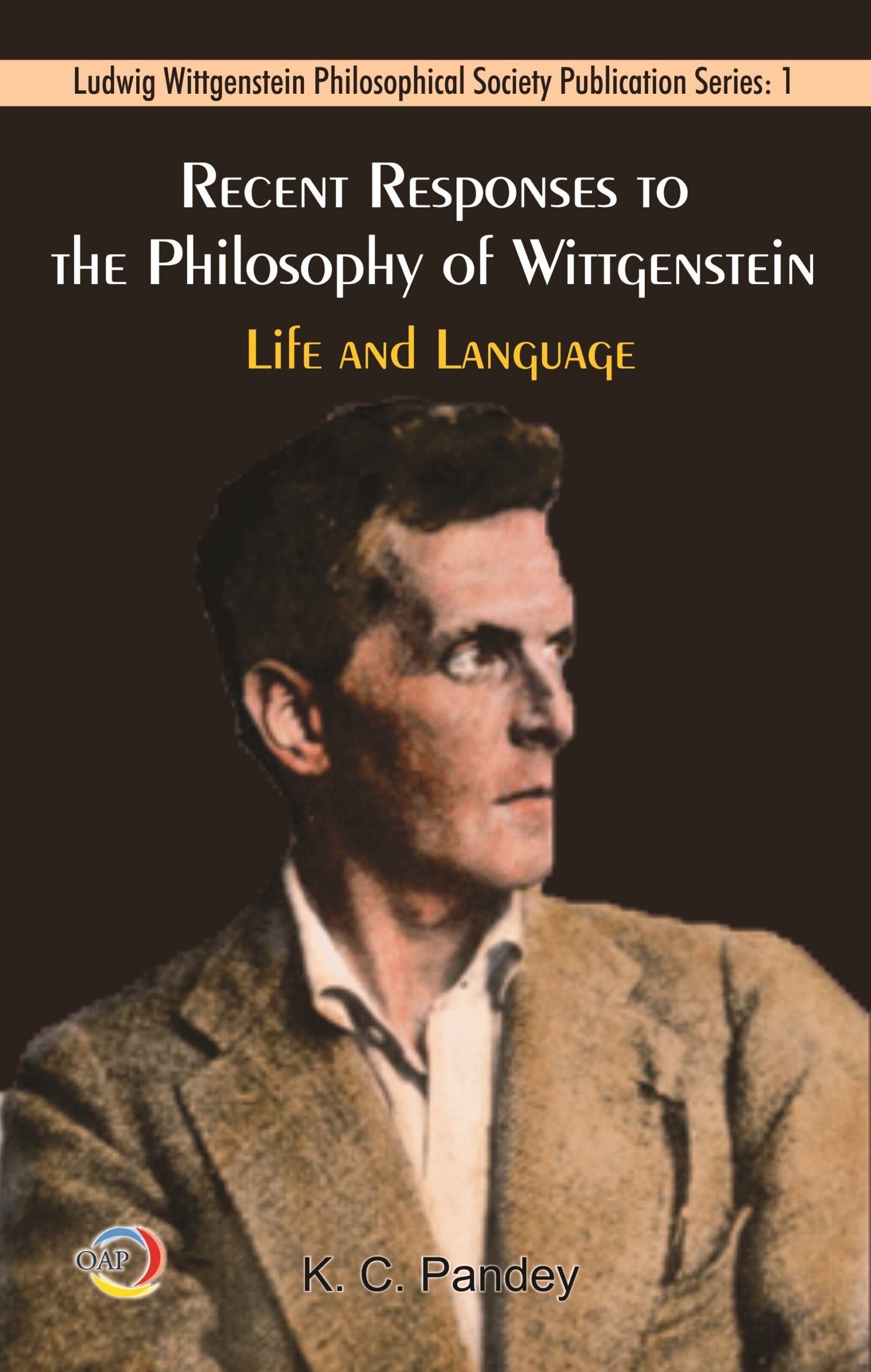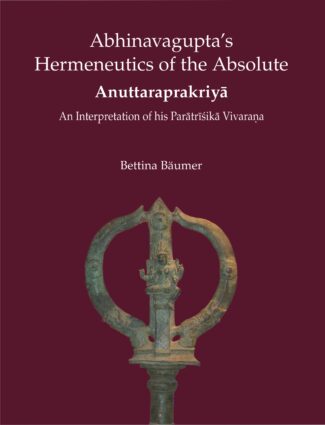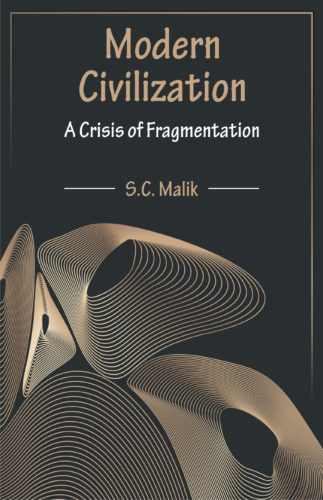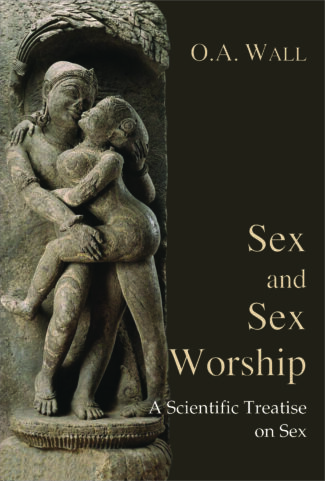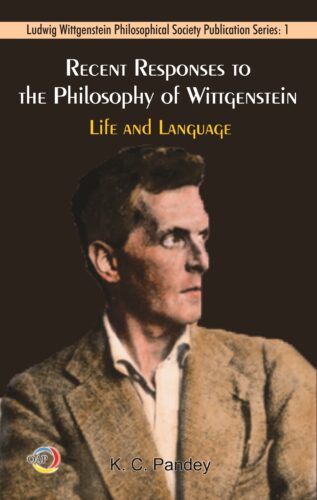
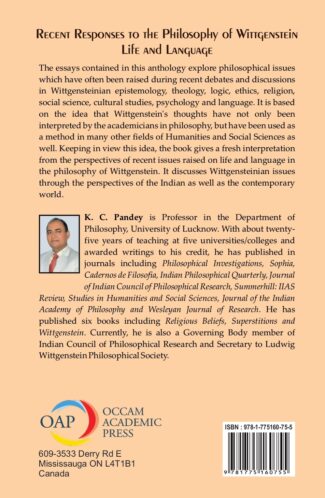
Recent Responses to ...
Recent Responses to the Philosophy of Wittgenstein
Life and Language by: K. C. PandeyThe book gives a fresh interpretation from the perspectives of recent issues raised on life and language in the philosophy of Wittgenstein. The essays contained in this anthology explore philosophical issues that have been raised during recent debates and discussions in Wittgensteinian epistemology, theology, logic, ethics, religion, social science, cultural studies, psychology and language.
₹1,800.00 Original price was: ₹1,800.00.₹1,620.00Current price is: ₹1,620.00.
ISBN: 9781775160755
Year Of Publication: 2020
Edition: 1st
Pages : xx, 268p.
Language : English
Binding : Hardcover
Publisher: Occam Academic Press
Size: 25
Weight: 700
The essays contained in this anthology explore philosophical issues which have often been raised during recent debates and discussions in Wittgensteinian epistemology, theology, logic, ethics, religion, social science, cultural studies, psychology and language. It is based on the idea that Wittgenstein’s thoughts have not only been interpreted by the academicians in philosophy, but have been used as a method in many other fields of Humanities and Social Sciences as well. Keeping in view this idea, the book gives a fresh interpretation from the perspectives of recent issues raised on life and language in the philosophy of Wittgenstein. It discusses Wittgensteinian issues through the perspectives of the Indian as well as the contemporary world.
- Sale!Abhinavaguptas Hermeneutics of the Absolute by: Bettina Baumer
₹1,800.00Original price was: ₹1,800.00.₹1,620.00Current price is: ₹1,620.00.The Paratrishika Vivarana by the great Kashmiri philosopher and mystic Abhinavagupta is an extensive commentary on the Paratrishika Tantra, and it is one of the most profound texts, not only of non-dualist Kashmir Shaivism, but of Indian philosophy and mysticism in general. The present work attempts to make this difficult text accessible, by culling out the important themes and offering an interpretation. The main focus is on the understanding of the Absolute (Anuttara) and the ways to realize it. The central theme of mantra also leads to a mysticism of language with its philosophical implications. All these reflections and practices are inscribed in the theory that everything is related to the totality, every part contains the whole of reality (sarvam sarvatmakam). It is this holistic vision of Abhinavagupta, based on the Tantras, which makes this work so relevant in our times of fragmented aspects of life and knowledge in search of integration. No doubt, in the view of the Tantra and of Abhinavagupta, language and mantra provide the key.
This fascinating book is an important contribution to studies and interpretations on Kashmir Shaivism, its spirituality and philosophy, and on Abhinavagupta in particular. - Sale!Modern Civilization by:
₹800.00Original price was: ₹800.00.₹720.00Current price is: ₹720.00.The crisis of the age inheres in this, that notwithstanding the century’s mind-numbing disasters, it persists in subscribing to propositions which have logically led to the atomization of the whole cloth of human experiencing, and being. Great indeed is the value which is placed on the procedure of analytic dismemberment. While the method has certainly been result-producing, materially, in its wake it has brought immense suffering – both physical and spiritual. The price paid for a lopsided advance is thirty major wars – with their toll of one hundred and thirty million lives, and the irreparable destruction of the natural environment. The time demands a reappraisal of the basic paradigms of human existence, but the hegemony of well-entrenched vested interests – material or intellectual – would seem to preclude this.
The “advanced” people among the mankind of the day become suicidally specialized. For, if the mechanical model of thought has been of advantage in man’s preceding unfolding, the same, what may be called the “survival” paradigm, now creates dangerous dualities, binary oppositions (you–me, body–mind, East–West, etc). The model has outlived its usefulness merely enforcing dormancy on a major part of the human brain.
It behoves mankind to choose wisely right now – since parallel to the socio-economic, scientific and technological revolutions there has got to be the overdue radical psychic transformation. The first step towards clearing the fateful crisis would therefore be to be aware and end the hold of the linear, causal, mechanical thought orientation over the intellectual culture of the times.
Delving deep into the epistemological cum ontological causation of the emergency confronting the being and becoming of man, this volume provokes the thoughtful lay reader to a serious engagement with his or her self. - Sale!Navya Nyaya Philosophy of Language by:
₹400.00Original price was: ₹400.00.₹360.00Current price is: ₹360.00.This book represents the philosophy of language in Navya-Nyaya, based upon an analysis of the “Verbal Suffix Chapter” (Akhyatavada) of Gangesha’s Tattvacintamani. Since this chapter elaborates what kind of verbal understanding is generated and discusses related issues, the book demonstrates the main features of that philosophy of language and serves as a good introduction to that. The analysis mainly deals with Gangesha, but in some cases it refers to Raghunatha. Since the book is an attempt to pursue philological exactness and philosophical analysis, it is hoped to interest not only Sanskrit scholars, but also philosophers in general.
The book consists of four lectures. Lecture I clarifies Gangesha’s view of the meaning of the suffixes of a finite verb, which (meaning) is greatly disputed among the Navya-Nyaya philosophers, the Mimamsa philosophers, and the Grammarians. Lecture II investigates how Gangesha determines the meaning of words and illustrates that his method bears upon ontological categories of Vaisheshika. Lecture III deals with Gangesha’s “Five Definitions of Invariable Concomitance Section” (Vyaptipancaka) and elucidates the relation between meaning and the logical structure of the definitions. The lecture also provides diagrams as a tool to represent the structure. Lecture IV explains the realistic standpoint of Navya-Nyaya by clarifying the concept of the counterpositive (pratiyogin) of absence (abhava), or a thing whose existence is negated, focusing on empty terms or non-factual expressions such as “a round triangle”, “the present King of France”, “a rabbit’s horn”, and so forth. The lecture delineates how Udayana, Gangesha, and Raghunatha observed and, as the time passed, did realism thoroughly in language analysis. - Sale!Sex and Sex Worship by: O. A. Wall
₹1,990.00Original price was: ₹1,990.00.₹1,980.00Current price is: ₹1,980.00.Mankind, when it gave expression to its first dawning of religious thoughts, wove a fabric of myths and theories about religion, the warp of which ran through from earliest historical times to our own days as threads of the warp of philosophies and theories about sex, male, female, love, passion, lust, desire, procreation, offspring, etc. The succeeding ages and civilizations wove into its warp the woof of the individual religions, myths and fables of gods and goddesses, so that the whole fabric of beliefs became refined as mankind itself advanced.
Sex and Sex Worship is the result of a long-time, arduous study of the concept of sex and the worship of phallus in various civilizations and in the development of different religions, modern and old, over a period of many millennia. The book makes one grasp a lot of topics associated with sex and sex symbols such as nature of sex and reproduction, status of women, cosmo-gonies, sex in man and animal, sexual relationship of gods and goddesses, virgin worship, phallic festivals, among many, while making it clear that the worship of generative organs was rather a use of representations of phallus and yoni as symbols for certain religious ideas which were embodied in nature worship.
It also vividly talks about the concept of sex and sex organs in art and ethics, sculpture, art anatomy, etc. The contents in toto lead one to the myriad aspects and concerns associated with sex and phallic worship. It is a must read for a scholar and a common man alike. - Sale!Vada in Theory and Practice by: Radhavallabh Tripathi
₹1,300.00Original price was: ₹1,300.00.₹1,170.00Current price is: ₹1,170.00.Vada, meaning debates, dialogues, discussions, was the quintessential of Indian spirit, enabling and promoting the growth of different philosophical and knowledge systems of India. It percolated deep into our mindset and enriched the moral, ethical, religious and sociocultural edifice of anything that was essentially Indian in nature. As continuation of Anvikshiki from the bc era, vada helped thrive Indian traditional knowledge systems. It subsists on diversity and its tradition envisages pluralism.
Most of our Sanskrit works, covering a wide gamut of knowledge systems, are structured in the techniques of debate. This reality applies not only to the philosophical writings, but to Indian medical systems (Ayurveda), Arthashastra of Kautilya and Kamasutra of Vatsyayana as well. Even great epics like Ramayana and Mahabharata are no exceptions.
Vada culture involved verbal duals, attacks and even violence of speech, and all major religious systems — old or modern — were parties to it. This book also elucidates how vata was vital and critical for the growth of our socio-political fabrics. It shows how some of the major conflicts in philosophical systems were centred around karma, jnana, choice between violence and non-violence, pravritti and nivritti. It also presents the manifestations of vada on a vast canvas during the nineteenth and twentieth centuries. Modern spiritual and religious gurus like Ramana Maharshi, J. Krishnamurti and Vinoba Bhave were men of dialogues. Our scholars have applied the varied techniques of vada against the philosophical and scientific systems of the West to prove them correct.
This collector’s issue should enthrall a wide audience of philosophers, scholars and believers in Indian knowledge systems.


